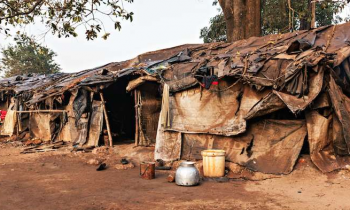23 November 2017, Author: Leila Maed
17 November 2017: The UN Educational, Scientific and Cultural Organization (UNESCO) has a new Director-General, Audrey Azoulay, who was formally endorsed by the 39th session of the General Conference of UNESCO. The General Conference also adopted: a series of programme and budget decisions for the next two years; the ‘Declaration of Ethical Principles in Relation to Climate Change’; and decisions related to UNESCO’s role in coordinating and monitoring progress towards achieving SDG 4 (quality education).
UNESCO’s 39th General Conference convened from 30 October-14 November 2017, in Paris, France. Speaking at her swearing in, Azoulay reaffirmed the need for concerted strategies in the framework of multilateralism to address environmental degradation, terrorism, attempts to discredit scientific findings, attacks on cultural diversity, the oppression of women and massive displacement of populations. Azoulay is the former French Minister of Culture and Communication, the 11th Director-General of UNESCO, and the second woman to hold the post. Her term began on 15 November 2017.
The updated strategy for action on climate change adopted at the Conference requires Member States to develop and implement climate change education and public awareness programmes and policies, and calls on UNESCO to promote interdisciplinary climate knowledge and scientific cooperation for climate change mitigation and adaptation. In adopting the ‘Declaration of Ethical Principles in Relation to Climate Change,’ UNESCO asserts that climate change is an ethical issue “at its core.” The Declaration addresses the need to respect ethical principles to avoid damage and injustice, and reaffirms the importance of a scientific approach to climate change.
Regarding education, the Conference reaffirmed UNESCO’s lead role in implementing SDG 4, by, inter alia: monitoring progress towards the education targets; convening global, regional and national stakeholders to guide implementation of the education agenda; and acting as a focal point for education within the overall SDG coordination architecture. The General Conference also emphasized the importance of human rights education and training, particularly as it relates to SDG target 4.7 (knowledge and skills to promote sustainable development).
The Conference allotted an integrated budget of US$1.2 billion to UNESCO for 2018-19, including a regular programme budget of US$595.2 million and voluntary contributions for specific actions from both public and private sources. The approved Programme and Budget ensures that UNESCO fully aligns its programme and resources to meet SDG 4 and other education-related targets, by, inter alia, ensuring a global Education 2030 observatory function to guide global policy and inform dialogue on the future of education, as well as a review and monitoring function for implementation of SDG 4, in order to contribute to both SDG 4 and SDG 17.
The General Conference also adopted 16 May as International Day of Light, in recognition of the central role that light and light-based technologies play in the areas of science, technology, culture, education and sustainable development, and in such diverse fields as medicine, communications and energy. It asked the Director-General to support efforts to have the UN proclaim 2019 as the International Year of the Periodic Table of Chemical Elements.
Source: http://sdg.iisd.org/news/unesco-picks-executive-director-adopts-decisions-on-climate-education/


